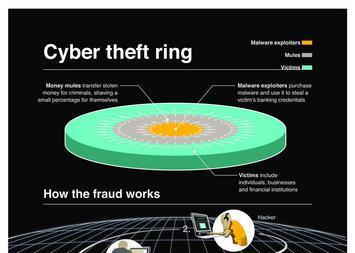Professor Peter Young, chairman of the academic panel of the Institute of Risk Management (IRM), is to undertake a thorough review of the IRM's principal qualification, the diploma, as part of the organisation's five year strategic plan.
He will consider its objectives, positioning and syllabus, and the results of the review should be available by the next annual Risk Forum in September 2006 or sooner.
The strategic plan, announced at the IRM's 2005 Risk Forum at the University of Keele in September, sets out the route by which the IRM intends to become the leading international provider of risk management education over the next five years.
Young explains why he has been asked to examine the diploma. "The feeling is that the risk management field is changing so rapidly that it is right to take on a root and branch review of the diploma rather than make provisional changes or a series of changes to specific modules within the diploma. We want to establish what is necessary to ensure the diploma matches the future needs of people who will be called risk managers or who will have risk responsibilities."
Currently the EW Blanch professor of risk management at the University of St Thomas, in Minnesota, Young is the first chairman of the IRM academic panel which was created earlier this year. He did his master's degree in political science before specialising in public sector risk management for his PhD, although over the last seven to eight years, he has been working increasingly for insurance companies and risk managers in the private sector.
Despite his US academic position, Young does much of his work in Europe, and he says there is a significant difference between the two continents in the way risk management is developing at the moment. "Things are moving more quickly in Europe, and there is a more interesting discussion from a conceptual point of view than in the US. It is occupying a higher management level, and there is a more energetic move to an enterprise risk management approach."
The UK, says Young, showed early leadership with the development of the IRM-AIRMIC-ALARM risk management standard and, in the context of corporate governance, with the Turnbull Guidance and Combined Code. These statements created formal expectations in organisations in the UK, and other European countries are catching up quickly.
Young adds, "In the US, liability is a huge issue compared to the UK, particularly in the public sector. As a result, the US tends to be more rules driven than Europe, while Europe is more principles driven than rules. As a result, in the US we tend to be very prescriptive and look for the legal system to establish formal relationships, and risk management tends to be a question of what the organisation needs to do to comply with the law. It makes the US risk manager more focused on process and in Europe on outcomes."
When it comes to risk management education, Young's view is that some IRM members will want to take a more technical approach to their professional education, perhaps specialising in health and safety or project management, which they will complement with a risk management qualification. Others will want risk management to be part of their general management skills and experience. At the moment, linkage between these different strands is missing.
There is, he says, a consensus that managers of risk need to be able to influence the CEO/senior management. He will be looking to ensure that the diploma syllabus will give the manager of risk the tools to do so, for which they will need more education in general management disciplines, such as strategic planning, finance and marketing.
However, says Young, "We don't want to reinvent the wheel. For instance, I don't think that the IRM should create its own MBA programme. Rather we should look where we can find a range of options and choices. It may be through relationships. We should serve a linking function so someone can find what he or she needs."
Risk Forum 2005
The 2005 Risk Forum, held at the University of Keele, was the IRM's most successful to date. It attracted the highest ever attendance, 320 delegates, and largest choice of workshops - over 40. The event also saw a major expansion in the education exhibition, with over 20 sister educational bodies and representatives taking part.
Keynote speakers, John McDermid, professor of software engineering, University of York, television journalist Rageh Omaar and Chris Butler, head of assurance, control and risk team, HM Treasury, challenged delegates' thinking on the scope of risk with their presentations on systems risk, a journalist's view of risk in volatile areas and the approach being taken by the UK government.
An innovation was a debate, led by Professor Peter Young, chairman of the IRM's academic panel, in which six practitioners from different backgrounds looked at the future of risk management from a professional perspective and discussed questions from the delegates.
Says Steve Fowler, CEO of the IRM, "We set out to create an event that was challenging, educational and fun, and judging from delegates' feedback, we achieved it."
The next Risk Forum will also take place at the University of Keele on 17-19 September 2006.
Membership restructuring
A new membership structure to bring the status of the IRM's highest grade levels in line with other professions will take effect from the new membership year starting 1 July 2006. The new structure will have four designations in place of the previous three, both to recognise holders of the new entry level qualification, the Certificate in Risk Management (CIRM) introduced this year and to reflect a broader range of routes to the highest designation, the Fellowship.
Another important change is that the current name for the IRM's principal membership category, Associate of the IRM (AIRM), will disappear. Instead, holders of the IRM Diploma will be designed Grad IRM or Member of the IRM (MIRM), depending on their level of professional experience. This is because other organisations often use the term associate to reflect their lowest qualification grade.



















